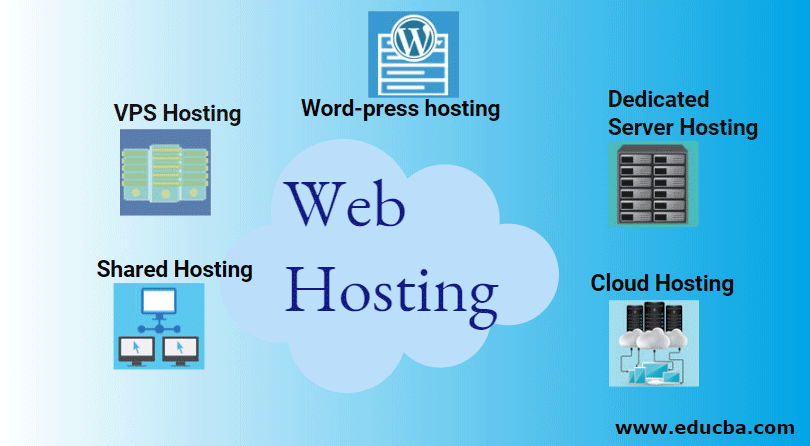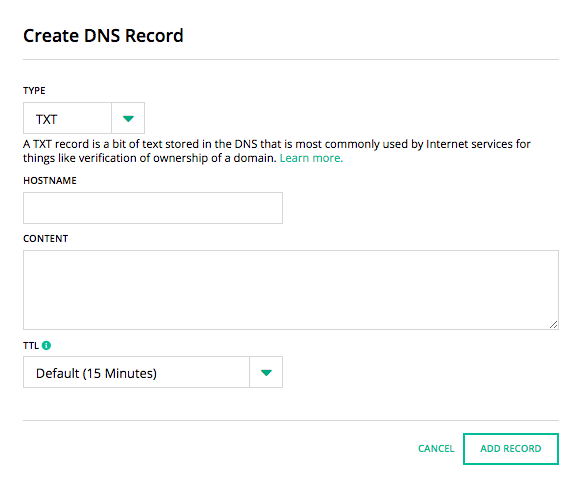
Domain certificates are the cheapest SSL certificates and they can be issued quickly (normally, within minutes). It is recommended for websites that handle little sensitive information. It is not as rigorous as Organization Validated and Extended Validated certificates and can be obtained by malicious bots, so it is recommended to use only with high-traffic sites that are mainly visited by humans.
Domain Certification
The main requirement for a domain certification is that you own the domain. The CA can verify this either by checking the WHOIS records for the domain, or by providing a file of verification that will be placed on your server and validated. This will help protect your clients and ensure their security.
DCV Verification Methods
There are several ways to complete the domain validation process, but e mail is by far the most popular. During this process, Comodo will send an e-mail to the administrative contact for the domain that contains a unique validation code and link to a verification page on their website. Once the domain owner replies, Comodo will verify their domain and issue their certificate immediately.
DNSimple also offers free WHOIS records for your domain. This will enable you to know the email address registered with the specific domain.

DV Multidomain Certificates
If you have multiple domains that need to be protected under one certificate, a DV multi-domain certificate is the way to go. You can secure internal and external subdomains with one certificate and a single installation.
Domain Registrar's Information
In this method, CA will check the information of domain registrar to directly verify ownership. It is important to make sure that the registrar's information is publicly available to avoid rejection of the certificate by the CA.
For this option to be available, select "Upload a File" on the final step during the SSL activation. The Certificate Authority then checks the file in each sub-folder on your server, and issues a DV SSL Certificate.
This process can take a while, especially if you have many FQDNs in your order. You must ensure that all FQDNs have been added to the order prior to completing this step.
Domain Authentication
The CA will verify that the domain name is registered to the person or company who submitted the SSL application by running a WHOIS lookup. They can also send an email verification to the admin for the domain, or create a DNS entry to verify control.

Domain Authentication works for a broad range of applications - from small to medium businesses, non-profits and enterprise sites. It's perfect for companies who don't deal with a lot confidential data.
For a Domain Validation Certificate you must submit your CSR along with proof of ID to the CA. The WHOIS record can provide the contact information and domain ownership details for a particular domain. Documents and company details are also acceptable. If you have any questions or need help with generating your CSR, our support team will be happy to assist you.
FAQ
Can I create my own website with HTML & CSS?
Yes! If you've followed the steps, you should now be able create your website.
You now know how to build a website structure. Now you need to learn HTML and CSS coding.
HTML stands for HyperText Markup Language. You can think of it as writing a recipe. You'd list the ingredients, instructions, along with directions. HTML is a way to tell a computer which parts are bold, underlined, italicized or linked to other parts of the document. It is the language of documents.
CSS stands as Cascading Stylesheets. You can think of CSS as a style sheet for recipes. Instead of listing all ingredients and instructions, you simply write down the basic rules for things such as font sizes, colors or spacing.
HTML tells your browser how to create a web page. CSS tells you how.
If you don't understand either of those terms, don't fret. Follow the tutorials below, and you'll soon be making beautiful websites.
Is web design difficult?
Web Development is not easy, but if you have a passion for coding, there are many online resources that can help you learn how to code.
The only thing you need is to search for the right tools and follow their steps step by step.
There are many tutorials available on YouTube and other platforms. You can also download free software online like Sublime Text or Notepad++.
Books are also available in libraries and bookstores. The most widely-read books include:
"Head First HTML & CSS" by O'Reilly Media
O'Reilly Media presents "Head First PHP and MySQL 5th Edition"
Packt Publishing - "PHP programming for absolute beginners"
I hope this article helped you.
How much do web developers make?
A website is a project you can work on for your own money. You'll likely make $60-$80 an hr. You can charge more if you're an independent contractor. You could potentially charge anywhere from $150-200 per hour.
Do I require technical skills to design or build my website?
No. All you need is an understanding of HTML and CSS. Tutorials that teach HTML and CSS can be easily found online.
Statistics
- In fact, according to Color Matters, a signature color can boost brand recognition by 80%. There's a lot of psychology behind people's perception of color, so it's important to understand how it's used with your industry. (websitebuilderexpert.com)
- At this point, it's important to note that just because a web trend is current, it doesn't mean it's necessarily right for you.48% of people cite design as the most important factor of a website, (websitebuilderexpert.com)
- The average website user will read about 20% of the text on any given page, so it's crucial to entice them with an appropriate vibe. (websitebuilderexpert.com)
- It's estimated that chatbots could reduce this by 30%. Gone are the days when chatbots were mere gimmicks – now, they're becoming ever more essential to customer-facing services. (websitebuilderexpert.com)
- Is your web design optimized for mobile? Over 50% of internet users browse websites using a mobile device. (wix.com)
External Links
How To
What is website hosting?
Website hosting refers simply to the place that people visit when they visit a website. There are two types.
-
Shared hosting is the cheapest. Your website files will reside on a server belonging to someone else. Customers who visit your website send their requests via the Internet over to that server. You then receive the request from the owner of the server.
-
Dedicated hosting – This is the most expensive option. Your website resides entirely on one server. Your traffic is private because no other websites have shared space on this server.
Because it is less expensive than dedicated hosting, shared hosting is preferred by many businesses. Shared hosting allows you to have your website run by the company who owns the server.
There are pros and disadvantages to each option. Here are some key differences between them.
Pros of Shared Hosting
-
Lower Cost
-
It's easy to set up
-
Frequent Updates
-
It is possible to find it on many web hosting companies
Hosting shared can be as low as $10 per month. But keep in mind that this price usually includes bandwidth. Bandwidth describes the amount of data that can be transferred over the Internet. Even if you upload only photos to your blog you might still have to pay more for large amounts of data that you transfer through your account.
You'll soon realize why your old host cost so much once you get started. Most shared hosts provide very limited customer support. Although their techs may help you with setting up your site, it's not a common practice.
It is important to find a provider that provides 24-hour support. They will assist you with any problems that may arise while you're sleeping.
Dedicated Hosting Cons:
-
More Expensive
-
Less common
-
Specific Skills Required
With dedicated hosting, all you need to maintain your website are provided. You don't need to worry about bandwidth usage or RAM (random access memory).
This means that you will have to pay a little more upfront. You'll soon realize that your business is self-sufficient once it's online. You'll become an expert at managing your servers.
Which Is Better For My Business:
The answer will depend on the type and purpose of your website. Shared hosting is best for those who only need to sell products. It is simple to set up and easy to maintain. You'll probably receive frequent updates because you are sharing a server hosting many other sites.
However, dedicated hosting can be a great option if you're looking to build a community around the brand. You can focus on building your brand without worrying about handling your traffic.
Bluehost.com offers both. Bluehost.com offers unlimited monthly data transfers, 24/7 customer support, domain registrations free of charge, and a 30-day guarantee for your money back.